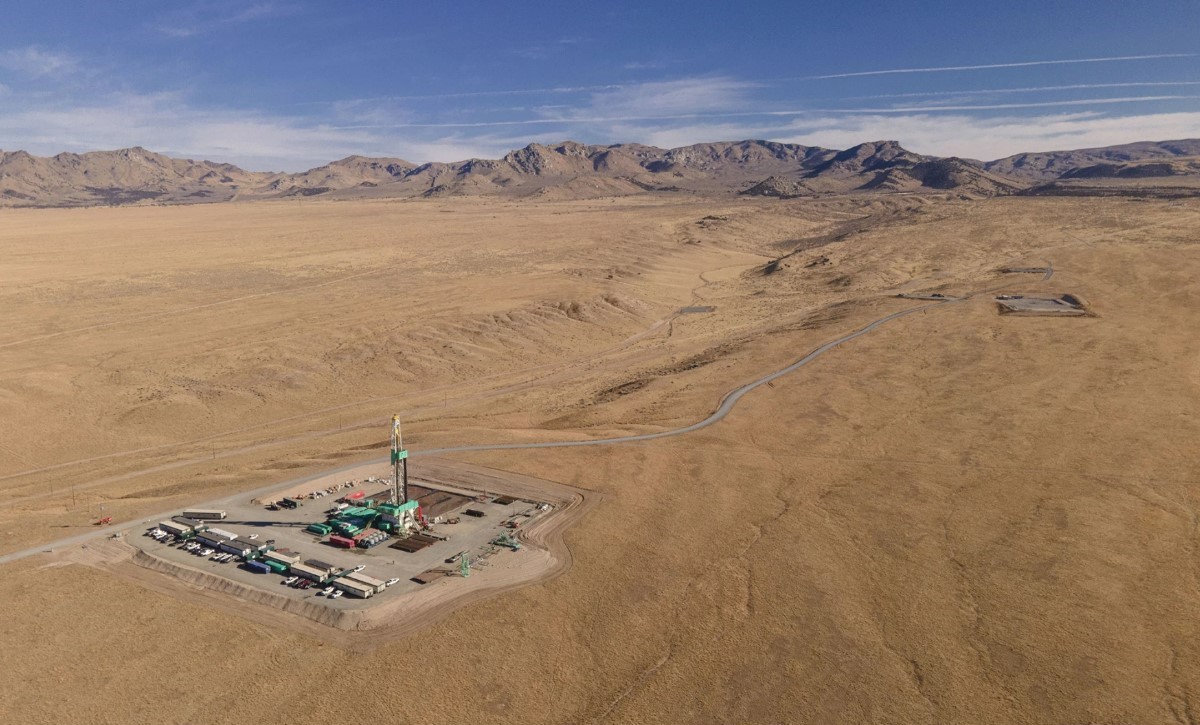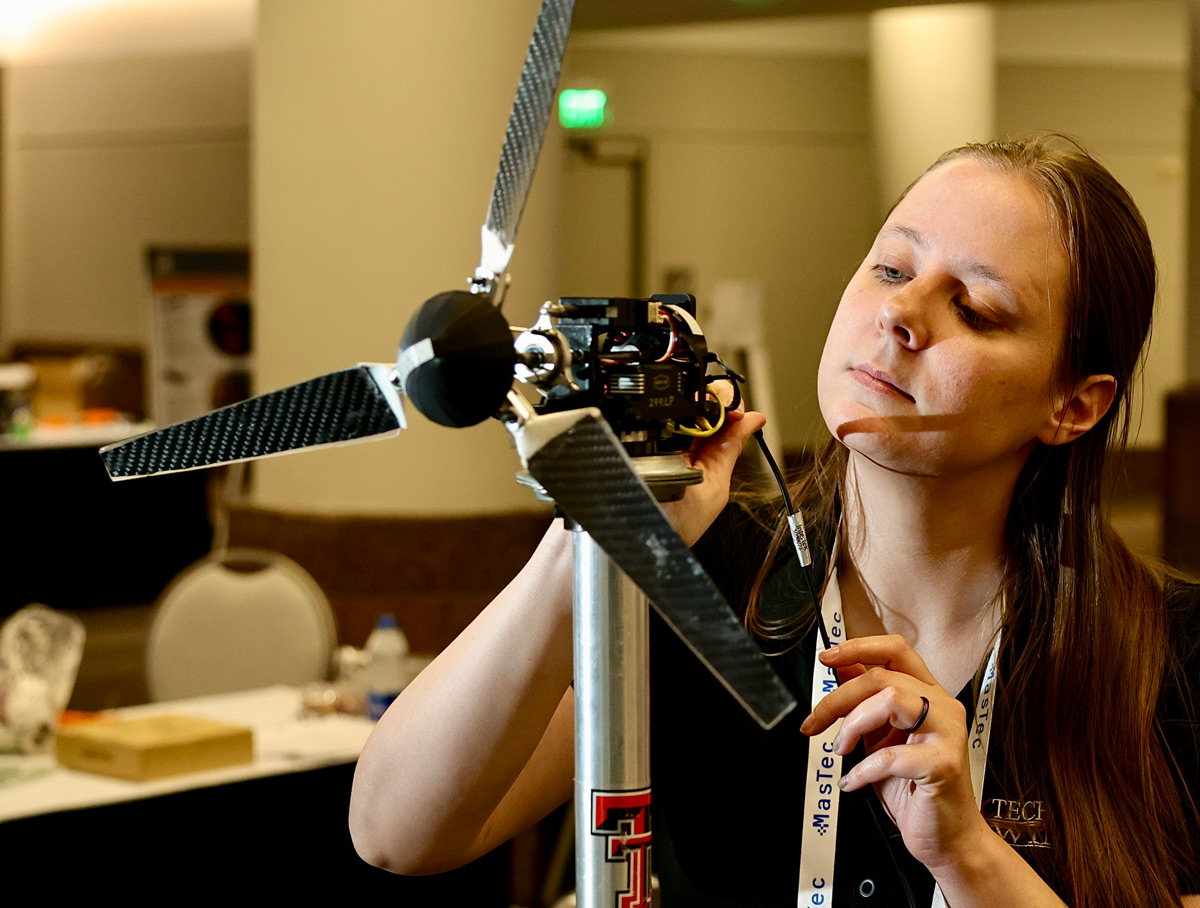-
 EERE is committed to bringing the benefits of energy innovation to every American by making the United States a global leader in renewable energy and energy efficiency technologies.
EERE is committed to bringing the benefits of energy innovation to every American by making the United States a global leader in renewable energy and energy efficiency technologies.
STEM (science, technology, engineering, and math) education is essential to the modern energy workforce. From solar panel installers and plant operators to laboratory researchers and engineers, the success of our nation’s energy goals depends on STEM careers.
Energy innovation thrives on a variety of perspectives and experiences. This is why it is important to ensure that the pipeline for energy careers includes people from all backgrounds, including demographics that are historically underrepresented in STEM, people with disabilities, and students who are from low-income backgrounds or first in their family to attend college.
How Is DOE Improving STEM Education and the Energy Workforce?
The U.S. Department of Energy’s (DOE's) investments in STEM support student competitions and prizes, career resources for both students and educators, and internships, fellowships, and offerings for graduates and postdoctoral professionals. EERE also works with minority-serving institutions, minority business enterprises, and other professional organizations to raise awareness of funding opportunities and STEM career pathway.
DOE's Office of Energy Efficiency and Renewable Energy (EERE) manages these investments through the Office of Integrated Strategies and EERE’s three core divisions: renewable energy, buildings and industry, and sustainable transportation and fuels.
EERE provides and supports STEM programming and clean energy education at colleges and universities. In addition, several EERE funding opportunities are designed to support advancements in STEM education and workforce development, including resources for educators and supports STEM programming and education at colleges and universities, including:
- Historically Black Colleges and Universities (HBCU) Clean Energy Education Prize is a $7.75 million prize competition with two tracks that helps HBCU institutions develop programming to strengthen the participation of K-12 and community college students in STEM fields related to clean energy.
- Offshore Wind Centers of Excellence is a $4.75 million funding opportunity will create one or more university-led Centers of Excellence to cultivate offshore wind expertise at American universities, address key offshore wind development challenges, and educate the next generation of offshore wind experts in the United States.
- The Faculty-Applied Clean Energy Sciences (FACES) Program provides renewable energy research opportunities to STEM faculty at non-research higher education institutions, bridging the gap between the research happening in DOE laboratories and the broader academic community.
- Clean Energy Careers for All (CEC4A) awards nearly $3 million to nonprofit educational organizations—including engineering, scientific, and technical societies—to support programs that promote awareness and interest in energy careers among diverse groups.
Student competitions help prepare high school, college, and graduate students to join the energy workforce. These competitions challenge student teams to pursue innovative ideas for energy solutions in technology and business. Participants acquire valuable industry experience and exposure to career opportunities while connecting with experts. Past and current opportunities include:
- AlgaePrize encourages students to pursue innovative ideas for the development, design, and invention of technologies within the commercial algae value chain.
- Collegiate Wind Competition helps college students prepare for jobs in the wind and renewable energy workforce through real-world experiences with wind energy technology, project development, finance, communications, and outreach.
- EcoCAR EV Challenge tasked students from 15 North American universities to engineer next-generation electric vehicles (EVs).
- FIRST Robotics is a five-week-long challenge for high school students in which they build and program robots.
- Geothermal Collegiate Competition invites teams from collegiate institutions to develop real-world geothermal solutions while competing for cash prizes and gaining resume experience in the renewable energy industry.
- Hydropower Collegiate Competition calls on interdisciplinary teams of undergraduate and graduate students to offer unique solutions to complex hydropower challenges.
- JUMP into STEM seeks to inspire the next generation of building scientists, focusing on creative ideation and diversity in the building science field.
- Marine Energy Collegiate Competition provides students with real-world experience and industry connections that will help them prepare for careers in the marine energy sector and the blue economy.
- Solar Decathlon challenges students to design and build high-performance, low-carbon buildings that address issues related to climate change, affordability, and environmental justice.
- Solar District Cup challenges multidisciplinary student teams to design and model optimized distributed energy systems for a campus or urban district.
With several programs to attract candidates from underrepresented communities, EERE provides opportunities for students, recent graduates, and others to jumpstart STEM careers through internships, fellowships, and research opportunities, including:
- The Energy Innovator Fellowship Program sends qualified recent graduates and energy professionals to support electric cooperatives, grid operators, municipal utilities, public utility commissions, state energy offices and Tribal entities to advance innovative energy solutions.
- EERE’s Interagency Agreement with the National Science Foundation ensures continued collaboration on scientific and engineering research that delivers decarbonization and environmental justice solutions.
- Graduate Education for Minority Students (GEM) Fellowship Program connects underrepresented students pursuing graduate degrees in STEM with top engineering and science firms and universities across the nation.
Students and other job seekers can also use EERE’s career maps to identify how their academic backgrounds may translate to a renewable energy career.
STEM in Education and Workforce News
-
 Advanced by Americans: A Year of Energy Innovation
Advanced by Americans: A Year of Energy Innovation -
 The 12 finalist teams will compete throughout the spring and present their work during the American Clean Power Association's CLEANPOWER 2025 Conference and Exhibition.
The 12 finalist teams will compete throughout the spring and present their work during the American Clean Power Association's CLEANPOWER 2025 Conference and Exhibition.

